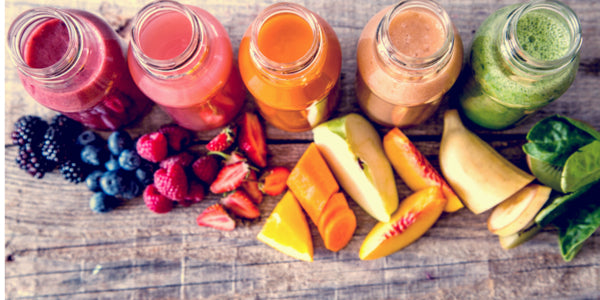Changing the food we eat may be one of our biggest challenges when working on our health. Food is tied to entertainment, family, celebration and there may even be an emotional attachment that makes it difficult to make adjustments. Working through the four stages of detox will help you cope with any uncomfortable feelings that may arise for you. And the good news is that you won’t feel deprived or starved over this three-week program. By eating foods that balance blood sugar, you will have more energy, lose weight (if needed), and have a better outlook on life. These rewards for eating healthy will encourage you to continue healthy habits for the long term.

What can I eat in the program?
The general rule of thumb is to stick to organic, whole, unprocessed foods. I call these “clean foods”, including beans, nuts, whole grains, healthy oils and organic produce. The foods to avoid include white flour, sugar, alcohol, caffeine, dairy and hydrogenated fats. You don’t have to eliminate entire categories of foods, such as carbohydrates, as some programs recommend. Instead, I recommend that you choose carbohydrates that release sugar slowly (because they are high in fiber) and don’t have gluten, such as oats, rice, corn, beans, millet and quinoa. Many people have an unidentified sensitivity to gluten, so it’s best to avoid it as much as possible or do a food challenge to see if you react to it.
In my book, The Rockstar Remedy, I give you a wide variety of foods to choose from, so you never feel deprived. You don’t need to count calories or eat the same boring foods every day. I encourage you to experiment with different spices to boost flavor, so the “healthy” foods are also flavor packed. It’s best to eat small frequent portions to support healthy blood-sugar levels and prevent hunger throughout the day. And here’s a little tip if weight loss is your goal; eat slowly, chew well and stop eating before you feel full. There is a lag time between a full stomach and when the brain recognizes the feeling, so just give it a chance to register.

What do you mean by "whole, unprocessed foods"?
Processed foods from a grocery store include anything that comes in a package, often with a long list of ingredients. If those ingredients are difficult to pronounce, you especially want to avoid it. Most of the processed foods you see in a standard grocery store contain hydrogenated fats, artificial flavors and colors, monosodium glutamate, high-fructose corn syrup and most have been stripped of any nutritional value. They are unsatisfying and leave you hungry soon after you eat them. Eating a diet full of processed foods is a sure way to get too many calories and very few nutrients. This explains why many Americans are overweight, undernourished and sick. (Learn more in the “Starving Artists” story in The Rockstar Remedy)
Whole foods are found in their natural state, such as the food you see in the in the produce and meat department. And within those departments, you should try to select organic items as much as you can afford. It is especially important to avoid commercial meats filled with hormones and antibiotics; you worked so hard to kick out those toxins—don’t invite them right back in! Your investment in organics will save you money on health bills in the future.
You may find it easier to control what kind of food you eat by cooking at home, but that doesn’t mean you can’t eat out at restaurants. Just be sure to choose the healthiest selections available and ask about questionable ingredients. You don’t have to stop having fun just because you want to be healthy. Nor do you have to be unsociable!


